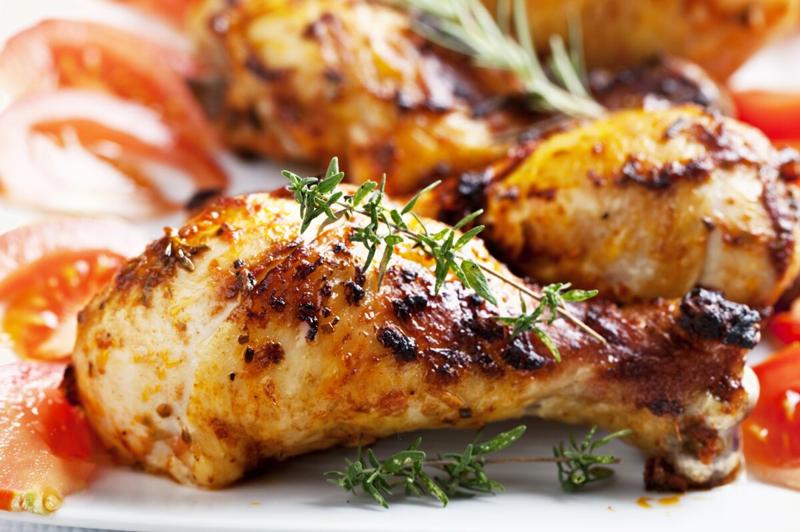Combining the DASH and Mediterranean diets, the MIND diet (Mediterranean-DASH Intervention for Neurodegenerative Delay) focuses on specific foods that enhance brain health. By targeting these foods, the MIND diet has the potential to reduce the risk of mental decline.
What Is the MIND Diet?
The MIND diet was developed by the late Martha Clare Morris, a nutritional epidemiologist at Rush University Medical Center, through a study funded by the National Institute on Aging that was first published in 2015. The observational study found that people whose diets very closely matched the MIND diet had about 53% lower risk of developing Alzheimer’s disease. Follow-up studies also connect the MIND diet to other positive cognitive effects.
Family friendly. Family members can easily eat meals together with little or no modification. The food options are healthy and balanced enough for all ages.
Budget friendly. Foods for this diet are easy to find at a typical grocery and don’t require expensive or specialty food items.
Planet friendly. The diet considers the environmental effects of food choices. It’s largely plant-based and/or the foods are mainly sustainably grown and produced.
Vegan and vegetarian friendly. Recipes can be modified for a vegan or vegetarian diet.
Gluten-free friendly. Recipes can be easily modified and still follow a gluten-free diet.
Halal friendly. Recipes can be easily modified and still follow the diet.
Kosher friendly. Recipes can be easily modified and still follow the diet.
Low-carb. The MIND diet’s brain-healthy food groups are naturally low in carbs. Low-carb diets contain significantly less calories from carbs than the federal dietary recommendation of 45% to 65%.
How Does the MIND Diet Work?
Eat seven 1-cup servings of leafy green vegetables weekly.
Eat five ½-cup servings of berries weekly.
Include whole grains and other vegetables daily.
Drink a daily glass of wine (optional).
Snack on nuts most days and eat a ½-cup of beans every other day.
Have poultry and a ½-cup serving of berries (blueberries are best) at least twice weekly.
Have fish at least once a week.
Extra-virgin olive oil, with two single-tablespoon daily servings, is your go-to, replacing butter, margarine or vegetable oil when cooking.
Have fewer than four servings of red meat and meat products like sausage weekly.
Have fewer than five sweets or pastries weekly.
Consume two single-ounce servings or less of full-fat cheese weekly.
In addition to focusing on brain-healthy foods, you avoid foods from brain-unhealthy food groups. With butter, you’re limited to one teaspoon or less a day.
How the MIND diet might reduce the risk of dementia or promote better cognitive function is not fully understood, says Puja Agarwal, a nutritional epidemiologist at Rush Alzheimer’s Disease Center and an assistant professor of internal medicine at Rush University Medical Center.
However, Agarwal says, the current theory is that plant-based MIND foods all “have various essential nutrients and bioactivity that are known to maintain brain function, and reduce plaques and tangles in the brain, and oxidative stress and inflammation – two of the major underlying factors for neurodegeneration.”
Healthy fat intake via fish, olive oil and nuts may help maintain brain cells and their connectivity. MIND encourages consuming less bad fat and sugar, “which may otherwise increase inflammation and amyloid-beta deposits – plaques in the brain that are the hallmark of Alzheimer’s disease,” Agarwal notes.
Can I Lose Weight on the MIND Diet?
As for the two diets on which MIND was based, some research has linked the Mediterranean diet to weight loss or being less likely to be overweight or have obesity. As with the DASH diet, you could lose weight on MIND, especially if you design your personal plan with a calorie deficit.
Short-Term Weight Loss
If you’re mostly interested in quick weight loss rather than brain health, the MIND diet probably isn’t for you. MIND ranked No. 23 among Best Fast Weight-Loss Diets. There’s a lack of evidence supporting MIND for rapid weight-loss effects.
Long-Term Weight Loss
MIND performed somewhat better for longer-term weight loss, ranking No. 11 among Best Weight-Loss Diets. However, adhering to MIND over time is not necessarily associated with weight loss.
One 2020 study of more than 6,500 participants with obesity found no effects on body weight or waistline size from following the MIND diet (1).
However, a 2017 review of the research on various different types of plant-based diets suggested that these diets are a good option for people who have a goal of creating dietary changes to help with weight loss (2).
Weight Maintenance and Management
A 2020 study of 836 adults found that those whose dietary habits aligned closely with the MIND diet had less general obesity on average, but they did not have a smaller waistline size (3).


Do: Pick berries.
What Does the MIND Diet Cost?
What Costs Are Related to the MIND Diet?
Possible MIND costs include:
Berries, fresh vegetables and higher-quality olive oil are often pricier than processed, fatty and sugary foods.
MIND (and Mediterranean and DASH) diet cookbooks are fairly inexpensive, often priced at less than $20 apiece.
Gym membership is one option for increasing physical activity as part of a brain-healthy lifestyle, but certainly not the only way.
Doing MIND Diet on a Budget
Choosing key items – like produce, olive oil and red wine – on sale helps cut costs.
Buying frozen vegetables and berries also helps you spend less on produce.
Is the MIND Diet Easy to Follow?
MIND is meant to be an adaptable, non-rigid way of eating.
“The MIND diet is actually a ‘non-diet’ approach,” Ventrelle says. “Rather than a strict set of rules about what is or is not ‘on the diet,’ the goal is to form overall healthy eating habits within a set of guidelines. The MIND diet recommendations are meant to be specific enough to stay true to its research-based foundation, but also general enough to allow followers to integrate some new habits into an existing lifestyle."
In fact, she adds, the motto could be: “neverMIND the diet.”
Who Should Not Try the MIND Diet?
As with any diet, you should check with your doctor if the MIND diet is right for you, particularly if you have any health conditions.
Pros
Nutritionally sound.
No counting carbs, points or calories.
Filling – it's rich in high-fiber foods.
A clearly defined plan with recipes.
Has proven health benefits.
Diverse foods and flavors.
Cons
Lacks in-depth nutritional guidance.
What Can I Eat? Do's and Don'ts of the MIND Diet
Foods to Eat
Green leafy vegetables, in particular.
All other vegetables.
Nuts.
Berries.
Beans.
Fish.
Poultry.
Olive oil.
Wine (optional).
Foods to Avoid (or Limit)
Red meats.
Butter and stick margarine.
Cheeses.
Pastries and sweets.
Fried or fast food.
Vegan and Following the MIND Diet
The plant-based MIND diet is an excellent fit for vegans. Green leafy vegetables, berries, extra-virgin olive oil, nuts and legumes are all emphasized on this diet intended to halt the development of Alzheimer’s disease. See all vegan diets.
Vegetarian and Following the MIND Diet
Well-rounded vegetarians will find that they already regularly consume the foods recommended as staples on the MIND diet. Some vegetarians will still need to keep an eye on their consumption of butter, cheese, fried foods and sweets. See all vegetarian diets.
Gluten-Free and Following the MIND Diet
Gluten-free adherents will only need to choose gluten-free whole grains such as millet, brown rice, quinoa, buckwheat and almond flour to make the MIND diet fit their existing dietary restrictions. See all gluten-free diets.
Halal and Following the MIND Diet
The MIND diet limits red meat in favor of poultry and fish. When you choose to eat beef, lamb or goat, put it on the menu no more than three times a week, and simply purchase meat certified as halal. Low-fat halal milk is acceptable in moderate amounts on the MIND diet. See all halal diets.
Kosher and Following the MIND Diet
You’ll be able to avoid mixing dairy products and meat, sea animals that do not have fins and scales, pork and animal hindquarters while sticking to the MIND diet. See all kosher diets.






